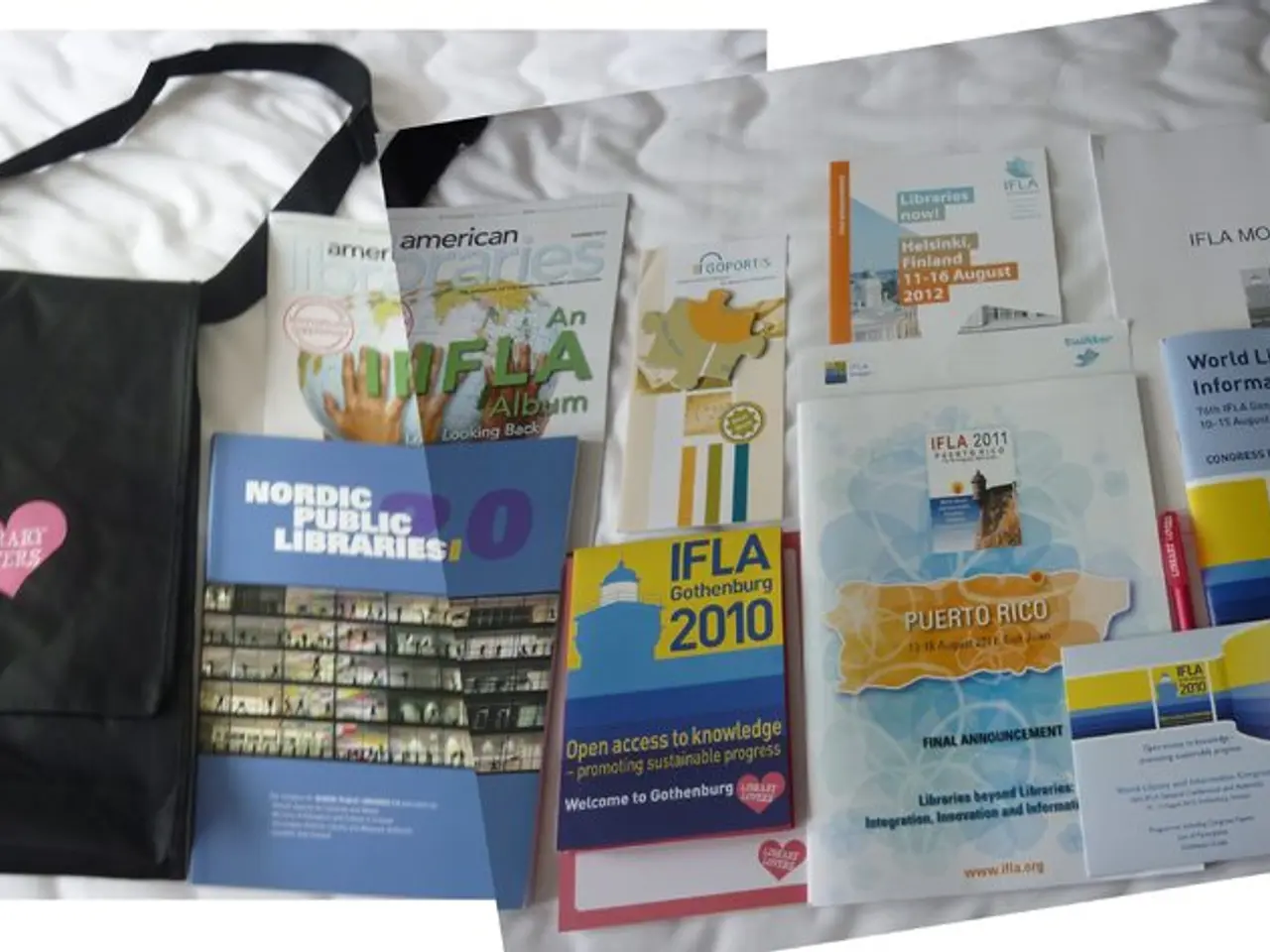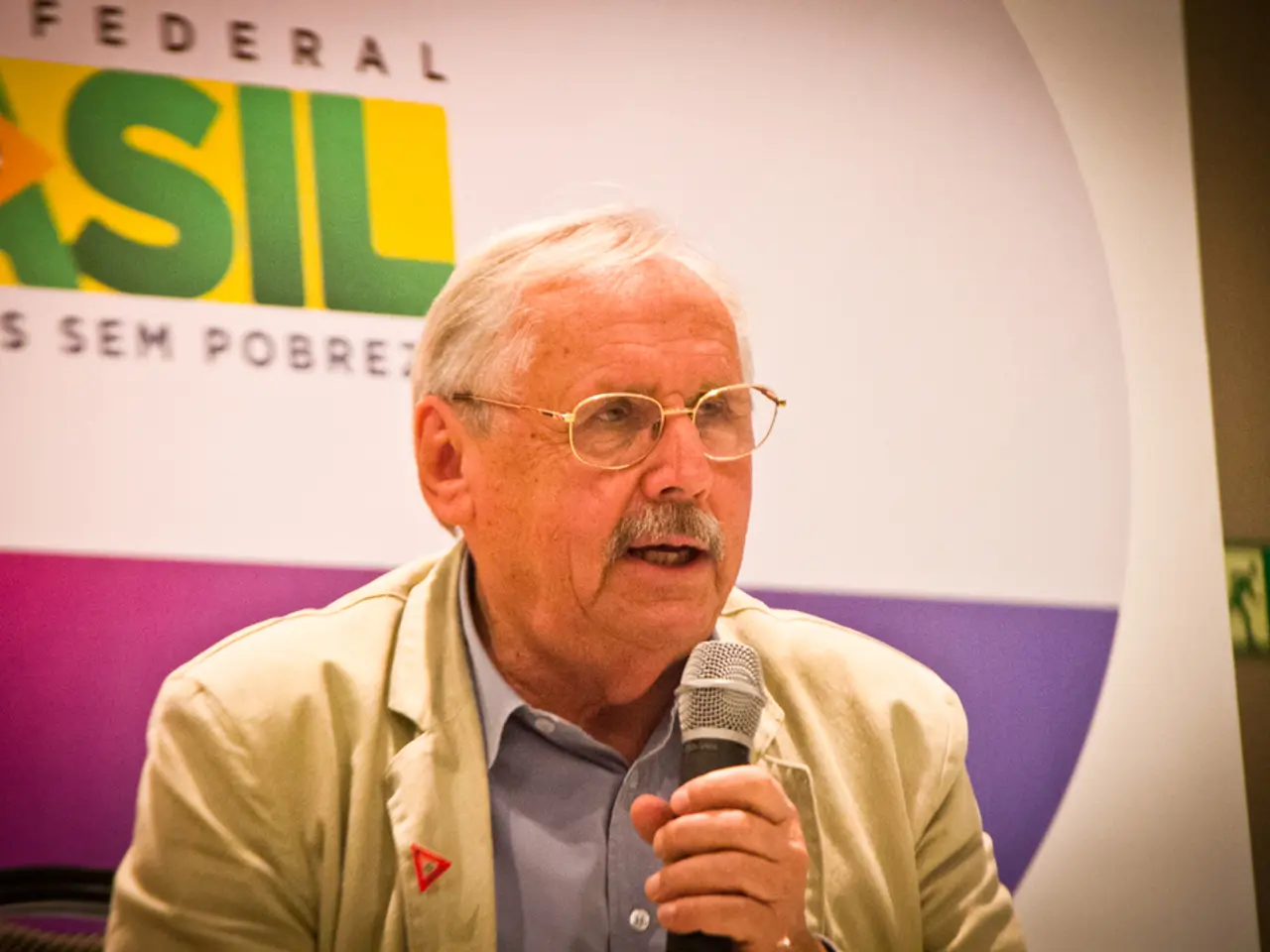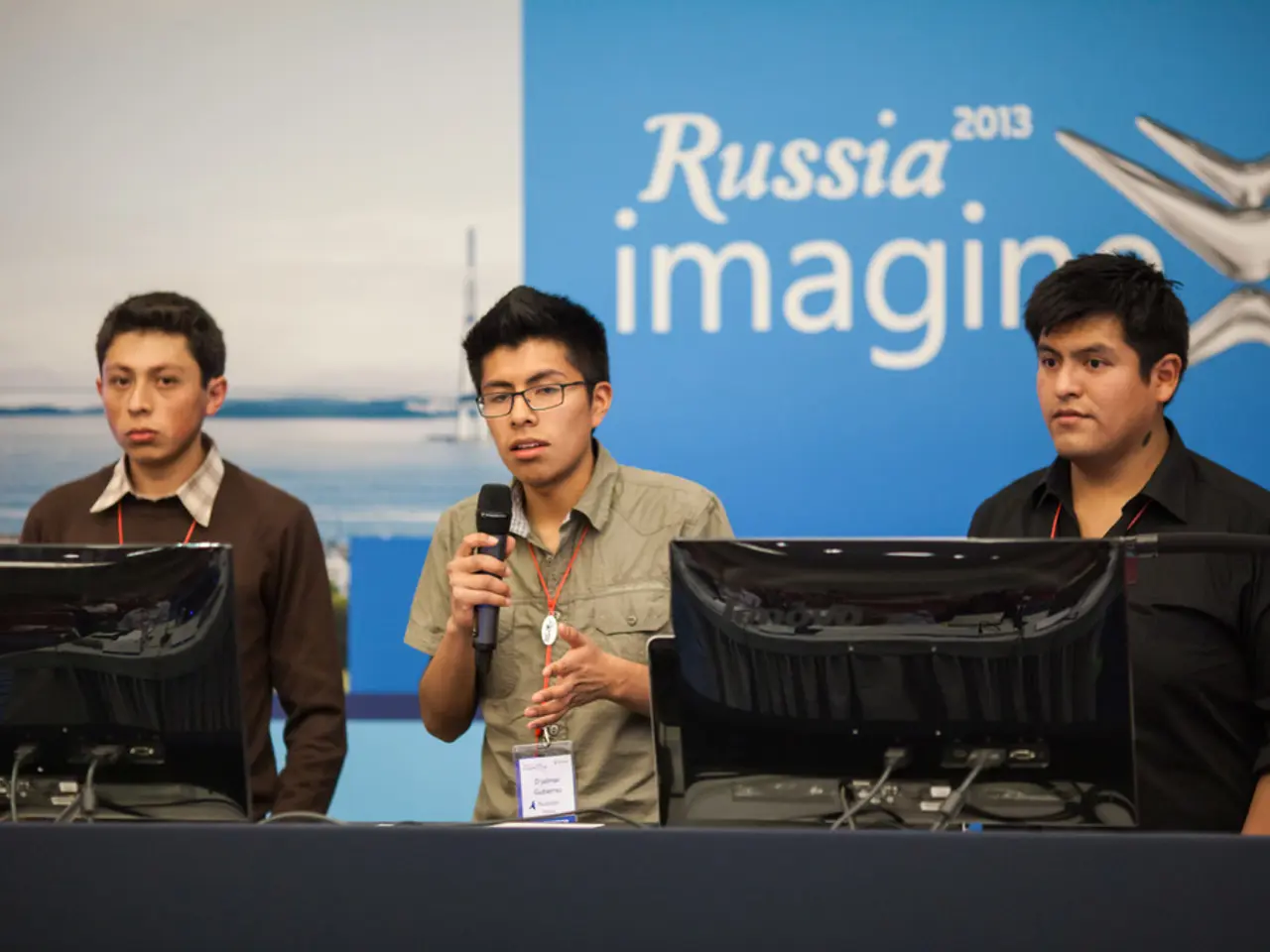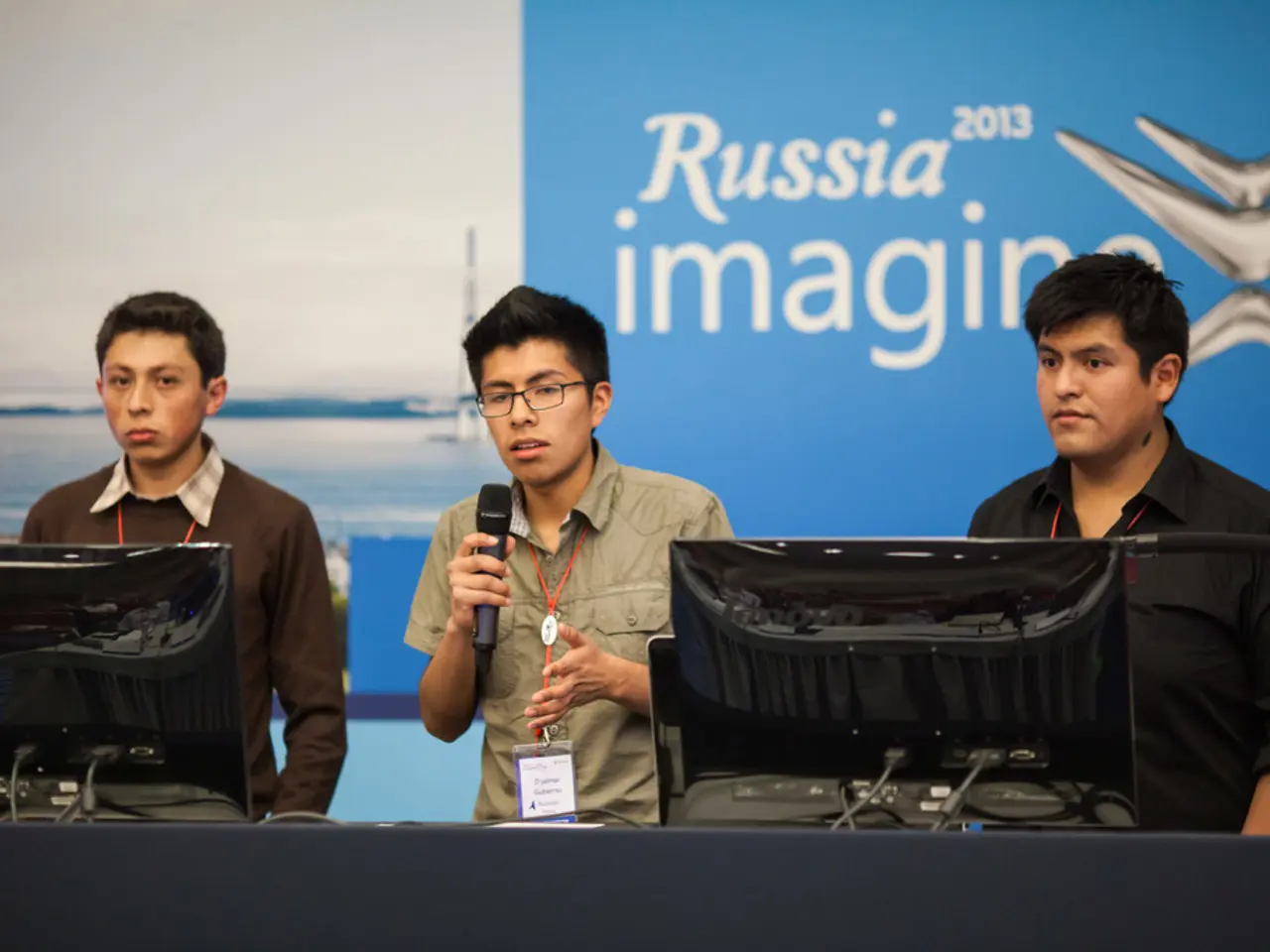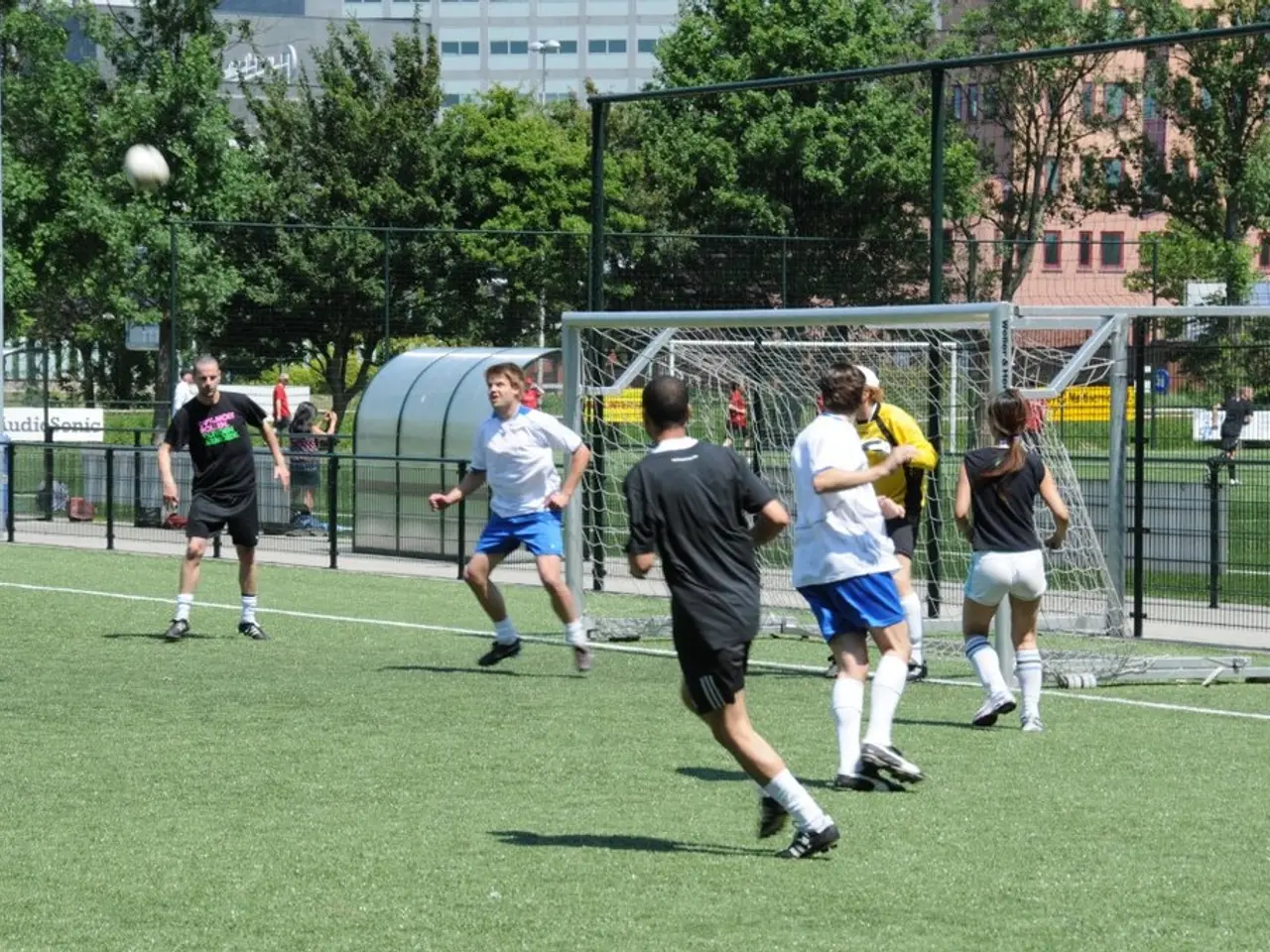Author Boris Akunin, residing in exile, receives imprisonment sentence from Russian court - Conviction of Exiled Writer Boris Akunin Imposes Jail Time in Russia
In a controversial move, a Moscow military court has sentenced renowned author Boris Akunin, whose real name is Grigory Chkhartishvili, to 14 years in prison in absentia. The charges include publicly justifying terrorism, facilitating terrorist activities, and violating Russia's “foreign agent” laws.
The sentence, handed down on July 14, 2025, specifies that Akunin will serve the first four years in a high-security prison, followed by 10 years in a strict-security penal colony. He was also fined 600,000 rubles (approximately $7,690) and banned from administering websites for four years after his imprisonment. The sentence will only come into effect if he is arrested upon crossing the Russian border or extradited back to Russia.
The background of the case includes several key elements. In January 2024, Akunin was added to Russia’s official list of “terrorists and extremists,” shortly after being formally designated a “foreign agent” and having an arrest warrant issued against him. Prosecutors accused him of justifying terrorism based on a February 2024 Telegram post where he expressed support for a “revolution” in Russia.
He was also accused of facilitating terrorism during a recorded phone call with pro-Kremlin pranksters posing as Ukrainian officials, in which Akunin voiced support for Ukraine. Furthermore, he was charged with repeatedly violating “foreign agent” rules by failing to mark dozens of Telegram posts with the required disclaimers in early 2025.
The criminal case was opened in December 2023 for publicly justifying terrorism and spreading false information about the Russian Armed Forces. The Kremlin’s role in this case appears to be one of direct prosecution and suppression, as the state authorities initiated the charges, labeled Akunin as a terrorist and extremist, and have aggressively pursued legal actions against him.
This sentencing is not an isolated incident. The Kremlin has intensified its crackdown on dissenting voices in Russia since the start of its Ukraine offensive. Several writers and artists have left Russia as a result, which could have a significant impact on the country's cultural landscape. The crackdown targets not only political voices but also extends to the cultural sphere.
Akunin, a vocal critic of Russian President Vladimir Putin and the Russian military offensive in Ukraine, has been living abroad since 2014. His exile, along with the exodus of other artists and writers, may limit the dissemination of diverse ideas and perspectives within Russia. The strict censorship in Russia may already make this a challenge, particularly under the current regime.
The Kremlin's actions could be interpreted as a form of political intimidation, a threat to artistic freedom and creative expression in Russia, and a broader suppression of free speech. The specific details of the jail term are not specified in the provided text.
Notably, the comedians who posed as Ukrainian President Volodymyr Zelensky during the phone call with Akunin were Russian pranksters. Akunin's popularity in Russia is evident, as he is considered one of the most-read contemporary authors in the country.
References: [1] https://www.bbc.com/news/world-europe-61642043 [2] https://www.reuters.com/world/europe/russian-author-akunin-sentenced-14-years-prison-absentia-2025-07-14/ [3] https://www.theguardian.com/books/2025/jul/14/russian-author-boris-akunin-sentenced-to-14-years-in-prison-in-absentia [4] https://www.aljazeera.com/news/2025/7/14/russian-author-boris-akunin-sentenced-to-14-years-in-prison-in-absentia
- In the face of growing political intimidation, renowned author Boris Akunin, living as an exile, may limit the dissemination of diverse ideas and perspectives within Russia due to his vocal criticism of Russian President Vladimir Putin and the Russian military offensive in Ukraine.
- The Russian court's sentencing of Akunin to 14 years in prison is a part of the Kremlin's broader suppression of free speech, which extends beyond politics into the cultural sphere, potentially impacting general-news and politics discourse within Russia.
